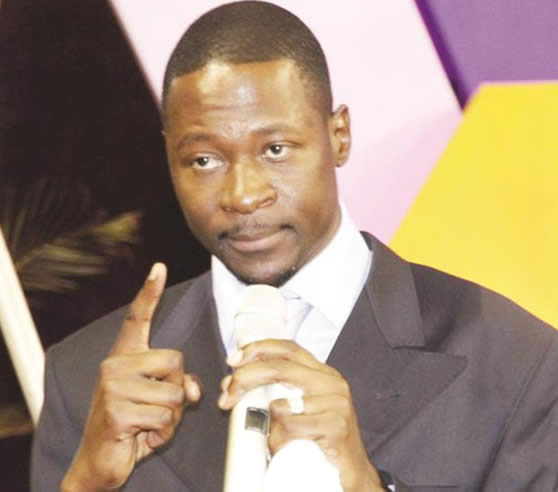The booming gospreneurship

On the day of the Black Friday November 14 anniversary we look at the only sector of society that has experienced a boom both in terms of earnings and popularity.
Pentecostal churches in particular have grown steadily and have overtaken the spaces that have been occupied by the traditional churches. Benefit to the economy? Minister of Tourism Walter Mzembi would say it does benefit the economy in the way of religious tourism. For the country’s population it has provided motivation and, most importantly, hope that the economy will soon turn around. Prophecies have been made about the economy, but we will not mention them.
Where are the Pentecostal churches now?
There has not been marked difference in the way that people worship except that titles have been added to qualified pastors. The Pentecostals are fast emerging as a dominant Christian grouping, which is in stark contrast to 25 years ago, going backwards. For years Pentecostals were a weird form of Christianity and were always looked down upon. “Church dzemweya, or church dzevanochema”.
Are there different kinds of Pentecostals?
There are classical Pentecostals, charismatic Pentecostals and Third Wave Pentecostals. Classicals owe their roots to the 1906 Asuza St revival in Los Angeles, California, and base their teachings on the revival or renewal of the first century or Peter’s Holy Spirit. It was led by William J. Seymour. . The most popular classical Pentecostal denomination, The Assemblies of God, was established in 1914 but here in Zimbabwe it is the Apostolic Faith Mission that is the dominant force behind this type of movement.
Pentecostal/Charismatic movements in modern Christianity
Third Wave churches are characterised by “signs and wonders” and led to many teachings such as the Toronto Blessing and laughing in the Spirit.
The age of the numerous titles (Eph 4:11) and
individual ministries
The growth of the Pentecostals is leaning around individuals and the creation of break-away or new movements, rather than strong associations or institutional forms. The main ambition of the majority of the pastors is to start their own ministries so that they can control, mainly the funds. With their emphasis on Holy Spirit gifts and power for all believers, Pentecostal churches are led by pastors who are seen as teachers, motivators and co-ordinators. Traditionally, Pentecostal pastors have received less academic training than in other denominations. They have theological training which generally only accords them the title of pastor. However, because of the emphasis on the five-fold ministry described above, these pastors are now titling themselves, Prophet (e.g. Makandiwa, Angel, etc.) Bishop (Bismark), Apostle (Tigere), Evangelist (the late Chiweshe) and Reverend (Chipunza and Manjoro). Apparently it’s also common nowadays that the wife naturally assumes a title even when she does not have theological training.
The underlying truth is that pastors who give titles to themselves are trying to trick people into believing they have a special gift from God, and are to be honoured somehow, with service or in the worst case scenario with money. It’s interesting, how many Protestant and later Pentecostal churches were traditionally very critical about churches where clergy was addressed by exalting titles, specially the use of “Father” as a title for the priesthood, yet this other trend of exalted titles for really Pentecostals has arisen from more or less the same socio-cultural milieu.
Where is Zimbabwe now?
As the economy continues to face challenges, some Zimbabweans have become so desperate for miracles and where one has some form of economic or social deficiency, they will offer their meagre incomes in exchange for the supernatural. The church business has become so viable to the extent that some notable church leaders have become millionaires in broad daylight. And here’s our popularity ranking:
(1)Apostolic sects – They are not really Pentecostals but they have played a huge part in assisting people through difficult times. Collectively, they are the largest grouping in the country accounting for over 3 million followers. Its popularity grew with the deepening of the economic crisis as people sought solutions and defences to their situations.
(2) Prophetic Healing and Deliverance Ministries – founded by Walter Magaya proves to be a force to reckon as it continues to attract a huge following. Recently during an all-night prayer in Harare Magaya drew a staggering 350 000 people from Zimbabwe and across the region undoubtedly making it one of the biggest congregations ever to grace the country.
(3) UFIC – Led by Emmanuel Makandiwa – He continues to draw a huge following at his City Sports Centre
(4) AFM Marimba – AFM Marimba is led by Pastor Stewart Tigere, who is one of the young leaders of AFM. He is AFM legacy. Tigere has prophetic abilities but because of his background he is comfortable as an evangelist.
(5) New Life Covenant – While its inability to branch out has proved to be the main downfall of Bishop Tudor’s Bismark church, the church remains a force to reckon within the religious circles.
Note that the views expressed in this article are the personal views of The Herald Business Desk and should not be misinterpreted as fact.










Comments